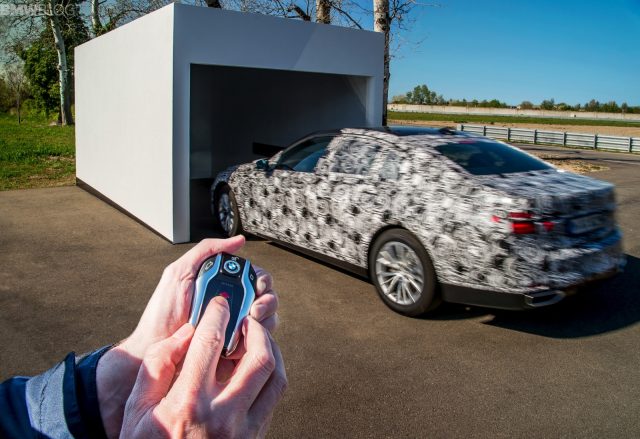
Baidu, the search giant that is all too often referred to as "the Chinese Google," is working with BMW to produce a prototype self-driving car. Exact details are scant, but it sounds like the car will be based on BMW's (semi) autonomous driving technology, backed up with Baidu's knowledge of Chinese roads. The car will hit the streets of China "before the year is out."
BMW and Baidu originally announced a partnership back in 2014, to develop a semi-autonomous vehicle within three years. This new update comes from The Guardian, reporting on Baidu's Jing Wang speaking at a cloud computing summit in China. Sadly we don't have a transcript of the speech, but according to The Guardian, "the prototype car will be used to test road-readiness of Baidu’s technology, which will involve the car driving itself but still have human controls."
While it might seem like a parallel universe episode of Fringe, Baidu really is in a similar situation to Google: it has a majority share of the search market (in China), a maps product, and a lot of R&D investment into deep learning, computer vision, and other A.I.-related areas. Much in the same way that Google is looking around for the next big thing after search, Baidu has its fingers in many different pies, including self-driving vehicles.
BMW, like most major car manufacturers, is getting to the point where it has mature semi-autonomous driving technology—lane keep assist, adaptive cruise control, self parking—and is now looking towards fully autonomous solutions. The new 2016 BMW 7 Series, unveiled just a couple of days ago, has features such as "speed limit obedience," which uses a forward-facing camera to look for new speed limits; and self-parking with the driver outside of the car: just push a button on the key fob and marvel as the car parks itself (pictured top).
As for BMW's fully self-driving aspirations, however, the company is keeping its cards much closer to its chest than Google, which already has a fleet of autonomous cars driving the streets of California. Established car makers like BMW and Mercedes seem content to forge ahead with semi-autonomous features, while upstarts like Google test the fully autonomous waters. Google gets all the positive PR and column inches, of course—but it also gets to deal with all the legislative roadblocks that need to be defeated before driverless cars are a reality.
Anyway, back to the BMW-Baidu deal. Back in 2014, then the deal was first announced, BMW said that it would build "prototype research vehicles for use in highly automated driving trials on Chinese roads" within two years. In an interview with The Next Web, Baidu's head of deep learning, Kai Yu, made it clear that the company would prefer to go down the semi-autonomous route, rather than Google's "big red button" approach. "I think in the future, a car should not totally replace the driver but should really give the driver freedom. Freedom means the car is intelligent enough to operate by itself, like a horse, and make decisions under different road situations," Yu said.
The prototype BMW-Baidu car, then, will probably be something like Google's current fleet of Lexus and Toyota cars: capable of self-driving, but there'll still be a human behind the wheel.
As The Guardian reports, one of the advantages of working on self-driving vehicles in China rather than the US might be legislation. Even if Google can produce a safe self-driving car, it may take a huge amount of effort to get it approved for use across US roadways. It could be easier for Baidu in China, where the government could push through a self-driving car mandate with relative rapidity.
Listing image by BMW
reader comments
54